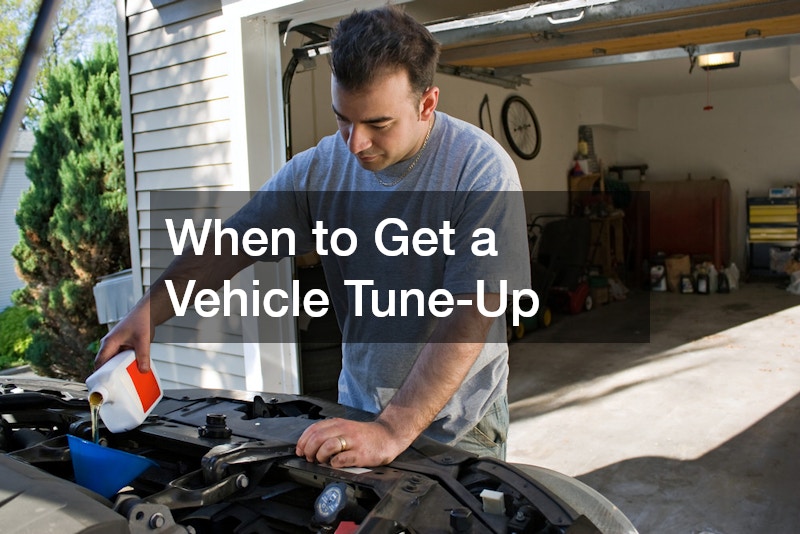In this comprehensive guide, we’ll explore the crucial aspects of vehicle tune-ups. Whether you’re a seasoned car owner or a first-time vehicle owner, understanding the importance of regular tune-ups can significantly enhance your vehicle’s performance and longevity. Let’s dive into the most asked questions about vehicle tune-ups.
Understanding the Basics
A vehicle tune-up is a set of maintenance tasks performed on a vehicle to ensure it is running at optimal performance. These tasks typically include checking and replacing spark plugs, filters, and other essential components. Regular tune-ups are a key factor in maintaining the engine’s efficiency and can help avoid unexpected breakdowns on the road.
Over time, the components of your car can wear out and affect vehicle performance. By addressing these issues early with a tune-up, you can prevent further damage and save significantly on repairs. Consulting with an “auto repair shop near me” can provide expertise in identifying what services are necessary at each interval.
Components Involved in a Tune-Up
During a tune-up, several components of your vehicle are inspected and serviced. These components often include spark plugs, fuel filters, air filters, and the ignition system. Paying close attention to these parts can prevent bigger issues down the line.
Each component has a specific lifespan and function essential for your car’s overall performance. Spark plugs, for instance, are crucial for combustion and power delivery, while clean filters ensure that harmful debris doesn’t enter the engine. Regular assessments and replacements by a qualified technician can keep these elements in optimal condition.
Neglecting these components can lead to problems such as increased emissions or reduced engine output. By consulting with an “auto repair shop near me,” you can identify any potential issues early. This proactive approach not only ensures your safety on the road but also maximizes the lifespan of your vehicle’s engine.
When to Get a Vehicle Tune-Up
Regular tune-ups are crucial for keeping your vehicle in top shape. It’s generally recommended to consult your vehicle’s owner manual for specific intervals, or rely on the expertise of an auto repair shop near you to advise on the best tune-up schedule. The frequency of tune-ups can vary depending on your driving habits and the conditions in which you operate your vehicle.
Ignoring the need for regular tune-ups can lead to poor engine performance and increased fuel consumption. Keeping a consistent maintenance routine can prevent this and ensure your vehicle remains reliable for years to come. When in doubt, rely on local experts by searching for “auto repair shop near me” to get timely advice and service.
Average Costs for Different Vehicles
While costs can widely vary, on average, a standard tune-up for smaller cars may cost less than that for larger vehicles or those with more complex engines. The make and model of your vehicle play a significant role in determining overall costs. However, regardless of these factors, maintaining a budget for regular vehicle maintenance is always a wise choice.
For example, compact cars typically undergo less costly tune-ups compared to trucks or SUVs due to the smaller scale of components and less time required for service. Keep in mind that as vehicles age, they might need more attention and possibly more costly parts. Therefore, tracking your vehicle’s past services and anticipating future needs can help manage expenses.
Budgeting for Regular Maintenance
To avoid unexpected costs, consider maintaining a budget for regular vehicle maintenance. This foresight can prevent larger, more expensive repairs in the future, keeping your vehicle in optimal working order. A strategic plan for handling routine expenses can be a lifesaver when unexpected repairs come up.
Having a fixed budget ensures that routine services such as oil changes, part replacements, and filter inspections are not missed. Such consistency can greatly prolong the functional life of your vehicle and maintain its resale value. Allocating funds consciously for these needs demonstrates a proactive approach to vehicle ownership.
Consulting and Comparing Estimates
Before committing to a service, it’s advisable to get estimates from several different shops. Comparing these can give you a better understanding of what should be included in your tune-up and the associated costs. Such comparisons highlight variances in pricing and can help negotiate better deals in your favor.
Consider the level of detail provided in the estimates as a marker of the shop’s professionalism. A well-structured quote should list individual line items and not just a lump sum expense. This breakdown provides clarity about what you are paying for and potentially identifies areas where costs can be streamlined.
While cost is a key factor, consider also valuing aspects such as warranty on labor or parts, customer service, and aftercare support. Value-driven decisions aim for a holistic benefit beyond mere financial savings. Prioritizing these elements ensures your vehicle receives comprehensive care that supports long-term reliability.
Understanding vehicle tune-ups and engaging with reputable auto repair shops are fundamental to keeping your car operating smoothly. Regular maintenance not only extends the life of your vehicle but also enhances safety and efficiency. Remember to consult with qualified professionals and prioritize routine check-ups for the best results.
.


